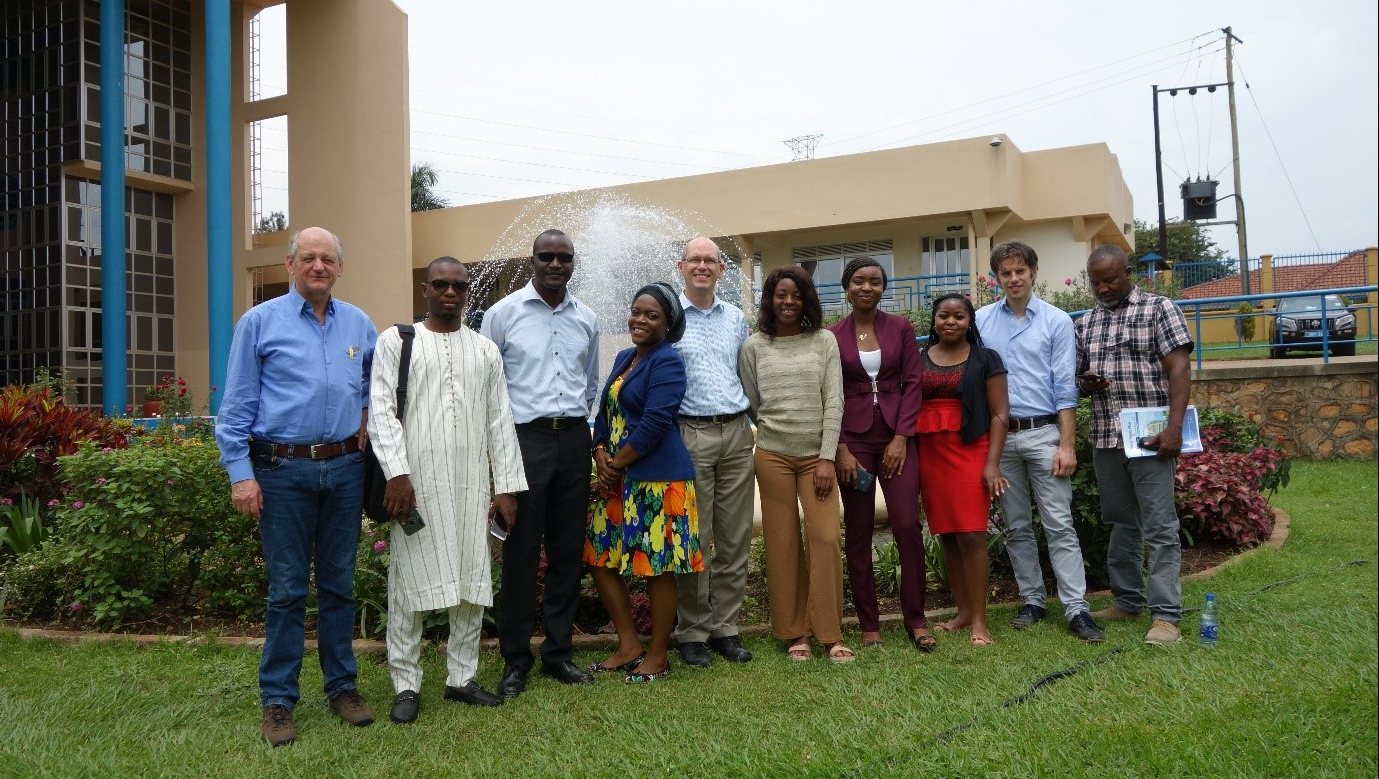Africa’s population is growing unprecedentedly. Population projections indicate more than doubling to 2.5 billion people by 2050 and further growth to 4.3 billion by 2100. Most of this growth will be absorbed in cities and urban areas, posing a huge challenge on water security, especially in urban areas. Developing actions to improve water availability at a quality fit for purpose, protection of life, property and ecosystems are becoming more urgent than ever.
To address this challenge, the University of Bath, KWR Water Research Institute, UNESCO Division of Water Science and the International Water Association (IWA) held a workshop in Uganda at the end of February, with the aim of training young professionals to develop a roadmap to enhance action for improved water security.
In preparation for the workshop, baseline assessments of five African cities – Harare, Yaoundé, Abuja, Bangui and Libreville – were carried out using the City Blueprint Approach. Dr Stef Koop and Prof Kees van Leeuwen, both scientists at KWR, have been working with representatives of the UNESCO Intergovernmental Hydrological Programme (IHP) and local young experts in each city to collect data on the key social, environmental and financial trends and pressures that can limit good water management.
The workshop started with two important keynote speeches from Dr. Callist Tindimugaya from the Ministry of Water and Environment in Uganda and Prof. Kala Vairavamoorthy, the Executive Director of IWA, which set the scene for the discussion. Next, young UNESCO experts presented their findings of the baseline assessment in the five cities. A number of congress delegates joined the workshop to learn from the approach. The second day then focused on developing the roadmap for a pro-active approach to water security, which will also support the young professionals and the cities to connect.
What's next?
In each city two more workshops will be organised. The first one will aim at top level interactions with politicians and decision-makers in the cities to report on the findings of the City Blueprint assessments and discuss options for improving water security. The second workshop will then focus on creating improvement projects and the discussions will include UNESCO donor organisations and funders such as the African Development Bank. The idea is to develop long-term bankable projects that will help to improve water security and water governance.
The workshop also laid the foundation for setting up a new city to city learning network. The ambition is to expand the network by starting to do City Blueprints in all African capital cities. The current young water professionals will act as trainers for their colleagues in other cities.
The workshop was co-funded by UNESCO, KWR and the University of Bath (IRO) and was organised by Prof Jan Hofman of The Water Innovation & Research Centre (WIRC) and KWR as a follow-up project from Kees van Leeuwen’s appointment as Global Chair in Bath (2018-19).

